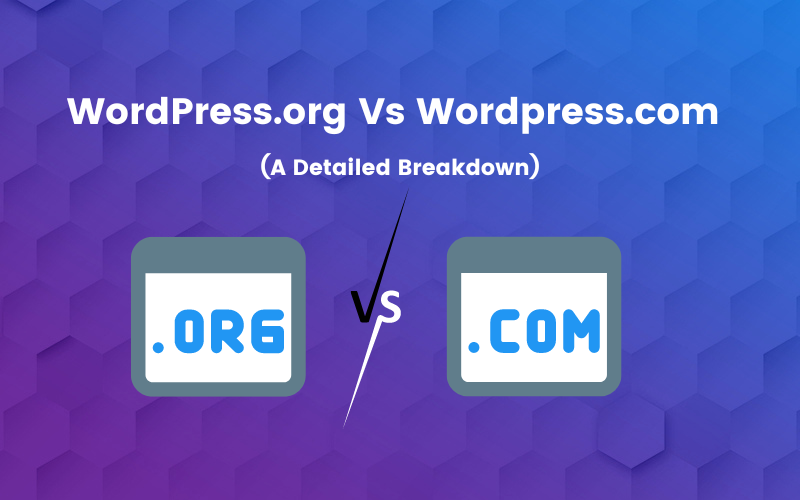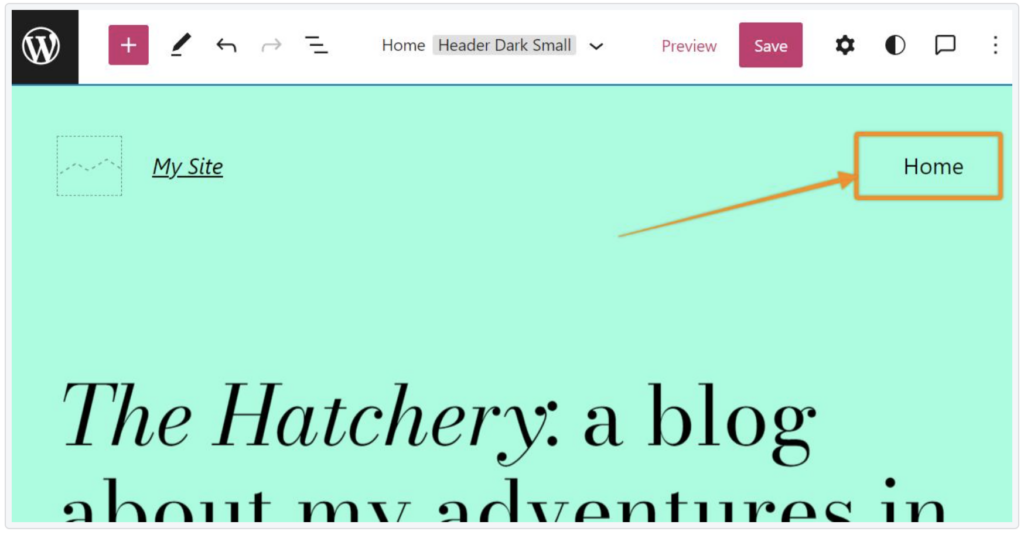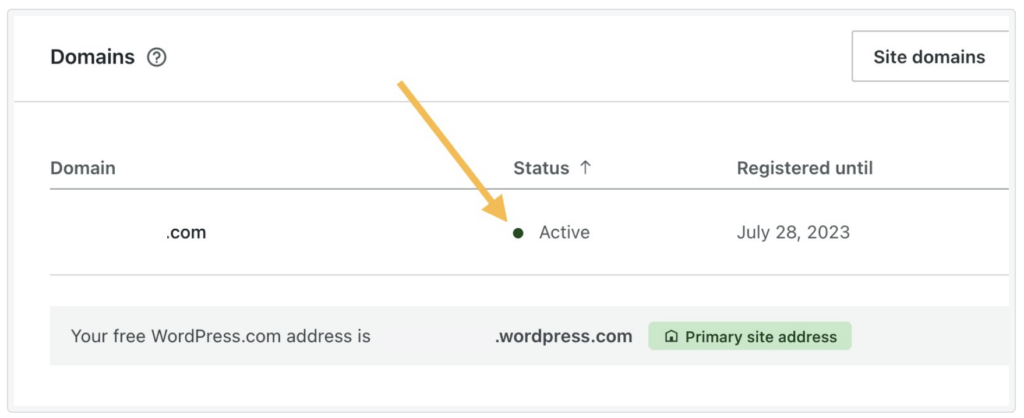


Ever found yourself caught up in the whirlwind of confusion that is WordPress.org vs WordPress.com? You’re not alone!
WordPress.org is like your own personal jet; you can do what you want and go where you want, but you have to pilot it yourself. WordPress.com, on the other hand, is your commercial airline; you’re well taken care of; no need to worry about the controls, but there are rules to follow. So, buckle up as we dive deeper into the differences between the two to help you pick your flight!
WordPress.org often referred to as self-hosted WordPress, is where the magic happens for those who want complete autonomy over their websites. It’s a free, open-source software that you download and install on your own web server. This is the real deal for those who are serious about website customization and functionality.
Being self-hosted, WordPress.org allows you to own your website fully and control every aspect of it. Want to install custom themes or add plugins to enhance your site’s functionality? You can do that! Thinking about monetizing your site through advertisements or eCommerce? Go right ahead!
On top of that, WordPress.org’s community is buzzing with developers and users who create, share, and support thousands of themes and plugins, which you can utilize to tailor your website to your liking. However, with great power comes responsibility, as you’ll need to handle your hosting, security, and backups. This platform is for those who aren’t afraid to roll up their sleeves and get technical.
WordPress.org software is not only free but also open-source. This means a global community of developers continually updates and improves it.
With WordPress.org, you entirely own your website and all its data. There’s no risk of your site being shut down, provided you adhere to the law.
WordPress.org lets you install both free and paid plugins and themes. You have the flexibility to modify designs to meet your unique requirements and create a wholly custom website if you wish.
You can run your ads on your website without sharing revenue with anyone. It provides excellent options for monetization.
WordPress.org supports powerful tools like Google Analytics, offering advanced tracking and analytics capabilities.
You can create different types of websites – an online store, a membership site, or a learning platform. You can accept payments, ship goods, sell memberships, and build a community right from your website.
WordPress.org requires you to handle your web hosting as a self-hosted platform, which costs around $3-$10 per month initially. As your website grows, hosting costs can increase, although by then, your site should be generating enough revenue to cover these expenses.
You’ll need to install the WordPress software yourself. Fortunately, most hosting companies offer 1-click WordPress installations, and there are detailed tutorials available if you need assistance.
You’re responsible for maintaining and updating your website, including the WordPress software, plugins, and themes. While updating WordPress is often as simple as clicking a button, it’s still a task that falls to you.
You’re also in charge of backing up your site. Although this can seem daunting, many excellent WordPress plugins can help you set up automatic backups, making this task manageable.
Read about the best corporate elementor template kits for WordPress here.

WordPress.com is the all-in-one platform for building and hosting your website without any technical hassles. It’s a commercial service owned by Automattic, the company founded by WordPress’s co-creator, Matt Mullenweg. With WordPress.com, you don’t have to worry about setting up hosting, installing software, or managing updates – it’s all done for you.
WordPress.com is often likened to renting a space on the internet for your website. It’s an ideal choice for bloggers, small businesses, or anyone who wants to have an online presence without getting into the nitty-gritty of website management.
The platform offers a range of plans, from a basic free package to premium options with added features. Each tier gives you access to a selection of themes for designing your site, and premium plans allow for more customization, eCommerce features, and even SEO tools. However, it’s worth noting that the freedom you get with WordPress.com is less than with WordPress.org due to its managed nature.
WordPress.com is free for up to 3GB of space, making it an excellent choice for hobby bloggers and family sites. Paid plans offer more storage and features.
WordPress.com handles all updates and backups, so you don’t have to worry about the technical side of maintaining a website.
Free WordPress.com sites display ads to your users. If you don’t want ads, you need to upgrade to a paid plan.
Selling ads on your website is not allowed, limiting your monetization options. Only high-traffic sites can apply for the WordAds advertising program, sharing revenue with WordPress.com.
Free plan users can’t upload plugins and can only use pre-activated Jetpack features. Only business plan users ($300/year) can install from a selection of compatible plugins, and the VIP program ($5000/month) allows for more plugin options.
You can only choose from a limited free theme collection on the free plan. Customization options are also limited unless you’re on a premium or business plan.
You are limited to WordPress.com’s stats and can’t use powerful platforms like Google Analytics unless you’re a business plan user.
Free WordPress.com sites come with a WordPress.com subdomain (e.g., yourwebsite.wordpress.com). It would be best if you had a paid plan for a custom domain.

WordPress.com reserves the right to delete your site if they believe it violates its terms of service.
Your site will display a “powered by WordPress.com” link, removable only by upgrading to the business plan.
WordPress.com doesn’t offer eCommerce features or integrated payment gateways unless you upgrade to the eCommerce plan.
Building membership websites is not possible with WordPress.com.
When it comes to WordPress.org vs. WordPress.com, the choice really depends on your individual needs and level of technical proficiency.
WordPress.org shines with complete ownership and control over your website. You own your data, can fully customize your site, and you’re free to monetize it as you wish. WordPress.com, on the other hand, offers a more managed solution but with several restrictions. It handles the updates and backups for you but at the expense of full control and flexibility.
While both platforms are technically free, WordPress.org requires you to pay for hosting, which can initially range from $3 to $10 a month. WordPress.com is free for basic use, but you’ll need to opt for a paid plan to remove ads, use a custom domain, or access premium features and more storage.
WordPress.org gives you access to over 50,000 free plugins and thousands of themes. It’s the best choice if you want to create an online store, membership site, or any other advanced website. WordPress.com limits theme and plugin options, and you can’t install custom themes or plugins unless you’re on a Business plan ($300/year) or VIP program ($5000/month).
WordPress.org doesn’t restrict how you can monetize your website. You can run ads, create an online store, or sell memberships without sharing your earnings. WordPress.com places its ads on your site unless you upgrade to a paid plan, and selling ads is generally not allowed. You can share ad revenue with WordPress.com via their WordAds program, but only on high-traffic sites or premium plans.
WordPress.com is easier for beginners, as it handles all the technical aspects. WordPress.org, while still user-friendly, requires more hands-on work. You’ll need to manage hosting, backups, and updates yourself.
So, if you’re looking for full control and flexibility and don’t mind handling some technical aspects, WordPress.org is the best choice. However, if you’re a beginner or you want a more hands-off approach, WordPress.com may be a better fit.
Let’s break down which platform suits which type of user:
For bloggers and hobbyists who are looking to share their passion with the world without the need for much customization or monetization, WordPress.com is an excellent choice. It’s simple to use, doesn’t require any technical setup, and the free version may offer all the features you need. However, if you plan to grow your blog and potentially monetize it in the future, you may want to consider WordPress.org from the beginning to avoid a migration down the road.
The choice can go either way for small businesses, depending on their needs and resources. If the primary need is for a basic online presence with some customization options, WordPress.com’s paid plans can be sufficient. However, if the business plans to use more advanced features, sell products online, or wants full control and ownership of its site, WordPress.org would be the better option.
WordPress.org is typically the better choice for large businesses and eCommerce operations. The level of customization, scalability, and control that WordPress.org provides is crucial for businesses at this scale. eCommerce sites can greatly benefit from the variety of powerful eCommerce plugins available for WordPress.org, like WooCommerce. Plus, larger businesses are more likely to have the resources to handle the technical aspects (or can hire someone who can) of running a WordPress.org site.
Choosing WordPress.com and WordPress.org depends on various factors. Here are some questions to consider:
How comfortable are you with technology and website management? WordPress.org requires more hands-on management, including dealing with hosting, updates, and backups. If you prefer a more managed solution and aren’t comfortable with these technical aspects, WordPress.com may be the better choice.
What’s your Budget for your website? WordPress.org is free, but you’ll need to pay for hosting and potentially premium themes or plugins. WordPress.com offers a free tier, but you’ll need to pay for a premium plan for more features, more storage, or to remove ads. Consider what you’re willing and able to spend.
What are your long-term plans for your website? If you’re just looking to share your thoughts or ideas and don’t intend to monetize or expand significantly, WordPress.com may suffice. However, if you intend to grow your site, monetize, or require more advanced functionality in the future, WordPress.org would provide more flexibility.
How important are full customization and control to you? WordPress.org gives you full freedom to customize and control your website, while WordPress.com is more restrictive. Consider what level of customization and control you’ll need for your website to function effectively and align with your vision.
Remember, there’s no universally ‘right’ choice between WordPress.com and WordPress.org – the best platform for you depends on your specific needs, skills, and goals.
And there you have it, folks! We’ve deep-dived into the world of WordPress, exploring the two faces of this versatile platform: WordPress.org and WordPress.com. We’ve uncovered the freedom and full control that WordPress.org offers, a haven for those of us who love to tinker and tailor to our heart’s content. And we’ve seen the ease and convenience of WordPress.com, a solid choice for those who want to focus more on content than code.
The choice between WordPress.org and WordPress.com is not black and white; it’s all about what fits your needs like a glove. Whether you’re a blogger just dipping your toes into the digital waters, a small business ready to make your mark, or a large enterprise scaling new heights, there’s a WordPress platform that’s perfect for you.
Remember, in the grand adventure that is building your online presence, choose the path that makes you feel right at home. Because, at the end of the day, it’s your journey, story, and website. Happy WordPress-ing!